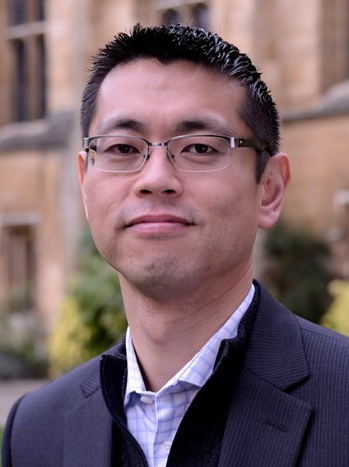题目:Embedded Intelligence for Adaptive Automation via Reconfigurable Robots /
From Bio-Inspired Sensorized Soft Robots to Informatized Embodiment “Info-bodiment”
时间:2025年10月17日 10:00-15:30
地点:77779193永利官网 振华会议室
邀请人:谷国迎 教授(机器人研究所)
报告题目:Embedded Intelligence for Adaptive Automation via Reconfigurable Robots
报告人:Prof. Jamie Paik(瑞士洛桑联邦理工学院)
时间:2025年10月17日 10:00-11:30
Biography

Prof. Jamie Paik is transforming robotics from lab to market. As founder of spin-offs MIROS and Foldaway-Haptics, her robogami technology was featured in Mercedes' VISION AVTR concept car at CES 2020 and showcased at TED, demonstrating real-world applications in automotive, medical, space, and wearable robotics.
As director and founder of the Reconfigurable Robotics Lab (RRL) and Vice-Dean of the School of Engineering at EPFL, Prof. Paik is a world expert in soft robotics and self-morphing robots. Her pioneering research leverages advanced design and manufacturing to develop reconfigurable robotic platforms that push the physical limits of materials and mechanisms. She has made seminal contributions to autonomous transformation systems, where robots convert from planar shapes to complex 3D structures through folding linkages, enabling both innate and active reconfigurations that respond dynamically to users and environments.
Her work has been published in the field's most prestigious journals, including Nature, Science, IEEE Transactions on Robotics, and Soft Robotics Journal, establishing fundamental principles in soft material robotics. Prof. Paik's research addresses critical challenges in interactive robotics, with applications spanning minimally invasive surgery, adaptive vehicle interfaces, space exploration, haptic communication, and next-generation wearable systems.
This unique combination of rigorous academic research and proven commercial translation positions Prof. Paik as a leader in robotics innovation with impact across both academia and industry.
Abstract
As intelligent systems move into physical environments—hospitals, homes, factories—a critical challenge emerges: how do we create machines that safely navigate the dynamic complexity of the real world?
Current approaches prioritize computational sophistication through massive datasets and learning algorithms. Yet physical interaction remains the bottleneck. Rigid automation struggles with contextual adaptation; conventional robots require safety barriers that limit human-centered applications.
Recent breakthroughs in reconfigurable robotics offer a different paradigm. Self-reconfigurable modular systems autonomously change their morphology; soft-bodied robots adapt their compliance based on context. These platforms embed intelligence in physical structure—achieving safety through material properties, versatility through morphological adaptation, and resilience through distributed control.
This talk demonstrates how physical reconfigurability addresses deployment challenges computational approaches alone cannot solve, offering policymakers practical insights for governing autonomous systems: platforms whose physical design provides inherent safety, graceful failure, and human compatibility.
报告题目:From Bio-Inspired Sensorized Soft Robots to Informatized Embodiment “Info-bodiment”
报告人:Prof. Fumiya Iida(英国剑桥大学)
时间:2025年10月17日 14:00-15:30
Biography

Fumiya Iida is a Professor of Robotics at Department of Engineering, University of Cambridge, the director of Bio-Inspired Robotics, and a Global Fellow of the University of Tokyo. He received his bachelor and master degrees in mechanical engineering at Tokyo University of Science (Japan, 1999), and Dr. sc. nat. in Informatics at University of Zurich (2006). In 2004 and 2005, he was also engaged in biomechanics research of human locomotion at Locomotion Laboratory, University of Jena (Germany). From 2006 to 2009, he worked as a postdoctoral associate at the Computer Science and Artificial Intelligence Laboratory, Massachusetts Institute of Technology in USA. In 2006, he awarded the Fellowship for Prospective Researchers from the Swiss National Science Foundation, and in 2009, the Swiss National Science Foundation Professorship for an assistant professorship at ETH Zurich from 2009 to 2015. He was a recipient of the IROS2016 Fukuda Young Professional Award, Royal Society Translation Award in 2017, Tokyo University of Science Award in 2021. His research interest includes biologically inspired robotics, embodied artificial intelligence, and biomechanics, where he was involved in a number of research projects related to dynamic legged locomotion, dextrous and adaptive manipulation, human-machine interactions, and evolutionary robotics.
Abstract
Soft robotics has made remarkable advances in developing deformable functional materials for locomotion, manipulation, and other forms of morphological adaptation such as self-healing, self-morphing, and mechanical growth. While these technologies have opened up new applications for robotics, they also present fresh challenges in sensing, modeling, planning, and control. Due to the inherent complexity of systems based on flexible and continuum mechanics, and the wide range of interactions with their environments, conventional methods often fall short, making novel approaches rooted in advanced machine learning essential. In this seminar, I will introduce several projects from our laboratory that leverage sensorized soft robots and machine learning to tackle these challenges. I will also present the concept of “Info-Embodiment” as a new research framework for realizing embodied intelligence and its technological underpinnings. As research in soft robotics and functional materials progresses, we are witnessing a fusion of the informational and physical realms. Within this context, where new forms of embodied intelligence are emerging, I will discuss how rapidly evolving fields such as machine learning can accelerate this development. Moving beyond traditional notions of bodily control and AI as purely computational, this approach explores the potential for new forms of intelligence in which the body itself becomes an active site for information processing and generation.

